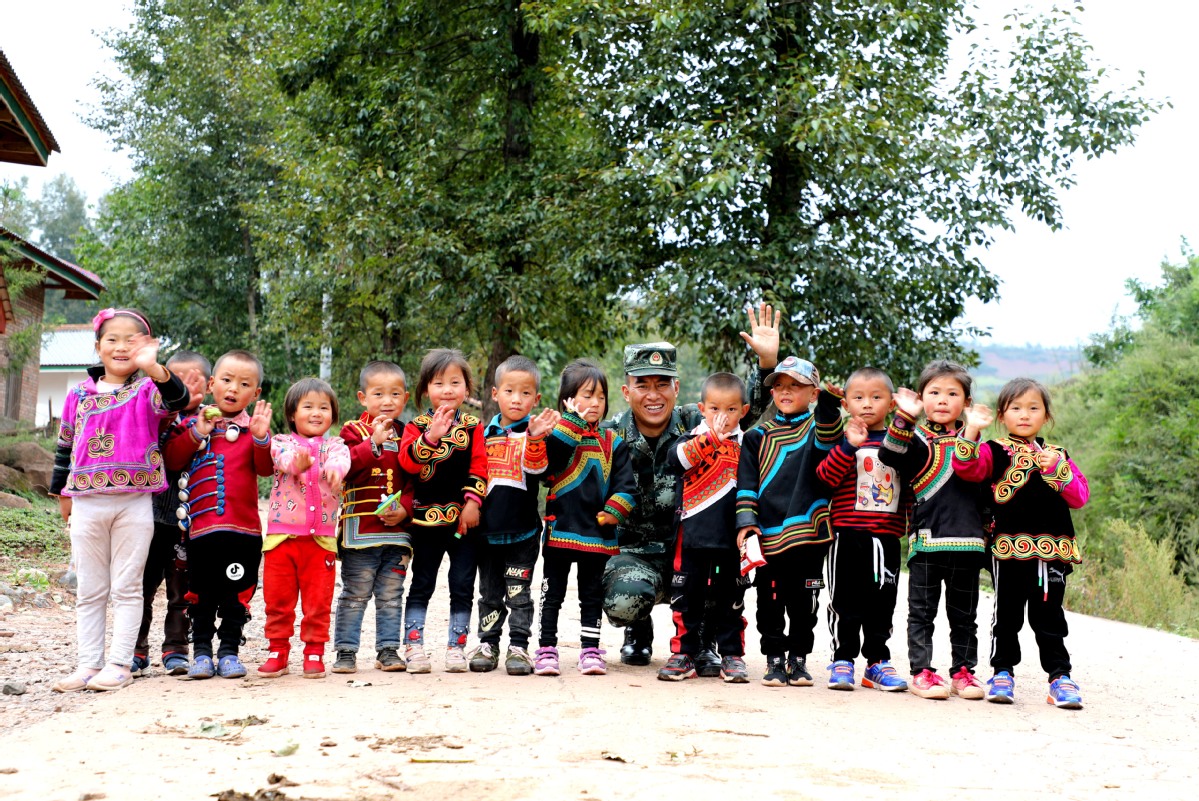New generation looks to education for bright future


When Buha, a poverty alleviation leader, took up his post in Suosuolada, a village in Liangshan Yi autonomous prefecture, Sichuan province, he spent hours locating children who had dropped out of school.
"Families in the village tend to have many kids, and due to poverty it was common for parents to let some of their children leave school and do odd jobs to support their siblings," said the member of the Sichuan People's Armed Police Force, who was appointed to the village in 2017.
"Poverty prevents children from going to school, which in turn leads to deeper poverty. To completely reverse the situation, the next generation must be educated."
Erguayi is in her third year of middle school, but she is about three years older than her classmates.
The 19-year-old's father died when she was 6 and her mother remarried, leaving Erguayi to live with her grandfather and two siblings. She dropped out twice during primary school to earn money to support the family.
"I hope my older brother and younger sister can receive an education. I think they can do well and have promising futures," she said.
Each semester, Buha gives her 600 yuan ($87) from his own pocket to ensure she can continue to attend classes. Her walk to school across the mountains takes about an hour each way, and while she has breakfast and dinner at home, she often skips lunch or just eats a potato.
When not in class, she helps her 85-year-old grandfather with farm work, but that takes up time she could use for studying.
"Before, I was not motivated to study because I didn't have enough time to do homework. Also, I wasn't quick to master lessons, which caused me to lag behind," she said.
"Every time I felt down and wanted to give up, Buha emphasized how important it is for village children to study. He told me the story of his childhood, which gave me mental strength."
She is determined to finish high school and university. Her dream is to become an expert and translator in the Yi language.
Since her grandfather won't be able to support her in the future, Buha found Erguayi a part-time job in a vegetable greenhouse that pays 60 yuan a day.
"Things are getting better and I will persevere and find a way to solve my problems," she said.
Adaaga, a Suosuolada native, worked for a telecommunication company after graduating from a Yi language school in Xichang, the prefectural capital, in 2012.
The 35-year-old returned to the village in 2015 to become a kindergarten teacher. She discovered that only about 30 children were attending classes, so she went from door to door to talk with parents.
"It was a shabby place, so nobody was willing to come. Parents felt it unnecessary to send their children to school at such a young age. It was common for children to go directly to the primary school at age 7 or 8.
"I told the parents that they wouldn't need to care for their children while they worked if they left them with me. Moreover, there was no tuition fee. After that, the number rose to about 80," Adaaga said.
In the 15-square-meter kindergarten classroom, the children learned Mandarin, good manners and hygienic habits. Adaaga helped them wash their faces and comb their hair. In summer, she washed their clothes.
It wasn't easy to care for so many children, and many teachers quit. Only Adaaga stayed, so she was left in charge.
"Despite my exhaustion, I didn't give up because I didn't learn Mandarin until I was 14, which meant I lost the chance to attend university, so I know the importance of education," she said.
Last year, the Sichuan PAP built a new kindergarten in Suosuolada, and now about 150 children are overseen by 16 teachers, including Adaaga.
Buha said the aim is to alleviate intellectual poverty and end the intergenerational transmission of poverty in mountainous areas.
"There is no essential difference between students from rich and poor families. What we really need to do is make good use of the university platform to continuously improve ourselves and then contribute to society," he said.
"Students from poor families have promise, too."
- China willing to advance just and equitable global anti-corruption system
- Chongqing hosts Silver Age fashion model competition
- Hengshan Mountain glistens with iconic winter rime scenery
- Ningbo hospital staff disciplined following pediatric surgery death
- Mainland warns Taiwan leader against provoking conflict
- Former senior official of Shenzhen under investigation






































